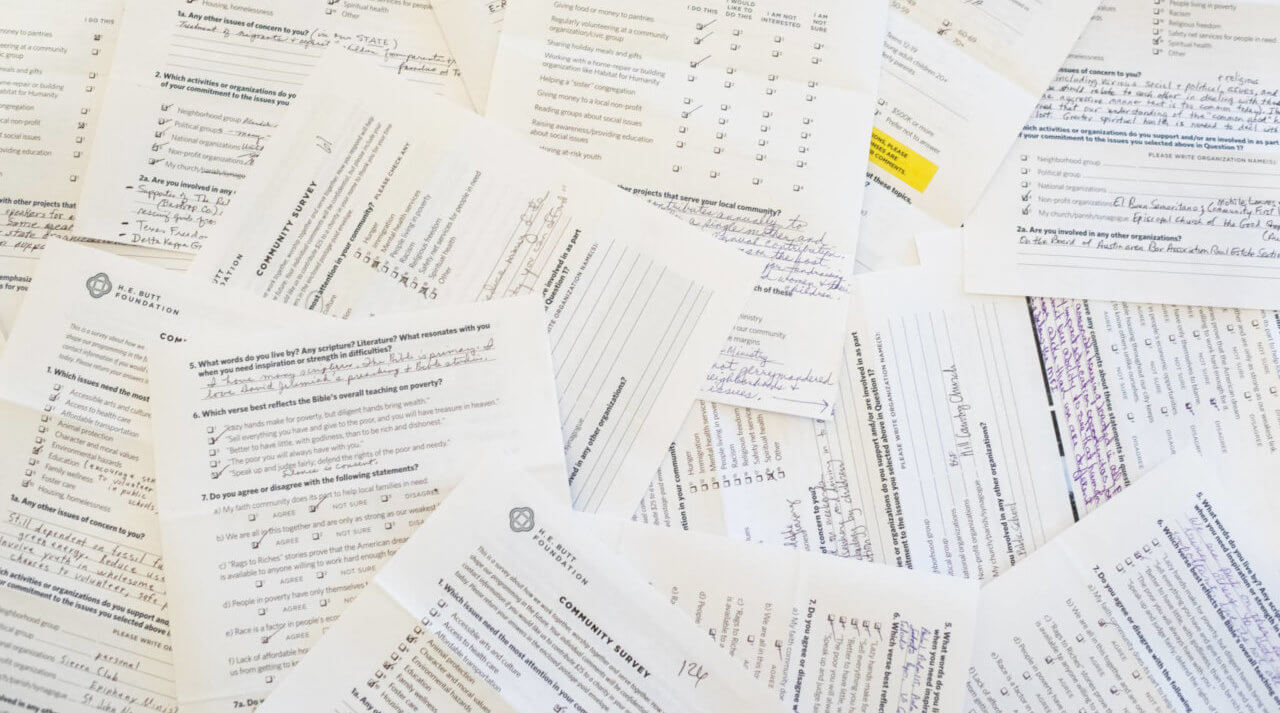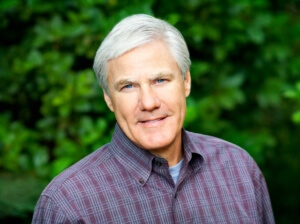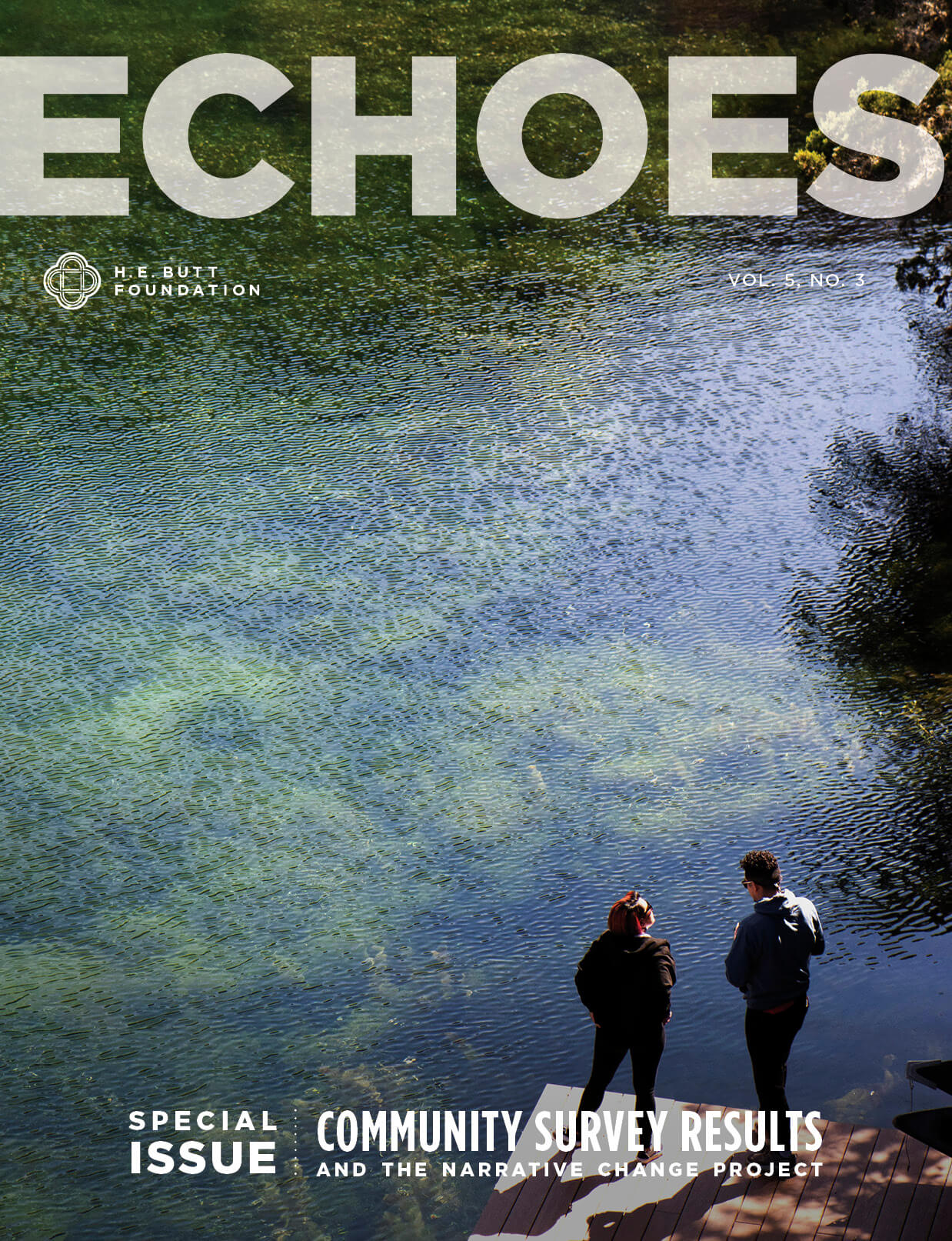
 I hope that means you’ll give it extra attention. I think it warrants a good, long look and some time to reflect.
I hope that means you’ll give it extra attention. I think it warrants a good, long look and some time to reflect.
About this time last year, we sent you a community survey. That was our way of starting a conversation with you about the gaps that exist within our communities, especially the gaps in opportunities and resources that leave so many families and children struggling to survive.
From our earliest beginnings, the H. E. Butt Foundation has worked to overcome those gaps in a variety of ways. One of the earliest intentions of Mary Holdsworth and Howard Butt, Sr. was to use the canyon on the Frio River to offer a restorative outdoor experience to anyone, regardless of their ability to afford it. Every year for more than half a century, tens of thousands of people from communities that lack basic resources are welcomed into that space, and we believe the experience can be transformative.
In recent years, we’ve gone deeper into this work. We’re working to build the capacity of a range of nonprofits in San Antonio. We’re spearheading efforts like recruiting the Family Independence Initiative into San Antonio as well, which provides unrestricted cash grants to families. And we’re working to change the narrative about why poverty and inequity exist and persist in such extreme degrees in our region. You can read about all these projects at hebfdn.org/community-engagement.
For that last piece in particular—changing the narrative—we need your help. We need your participation. All of us need to be continually asking the question that was asked of Jesus: “Who is my neighbor?” And we need to be listening to the answer Jesus gives.
The community survey was one step toward having this conversation together. In this edition of Echoes, you can read more about why we undertook the survey, what we saw in your responses, and what we’re learning as we listen.
I’m excited about the main lesson that has emerged from this process: Even for big, complicated problems like inequity, relationships are a key part of the answer. We can’t even begin to know who our neighbor is until we see them, engage them, and join them in their journey.
—David Rogers
As a solution to a big social problem like inequity, “relationships” may sound too simple or too soft. But lack of connection between people perpetuates a lack of empathy and understanding, which leads to a lack of vision for lasting change. And there’s nothing soft about relationships.
Who received and responded to the survey? The basic answer: older people of Christian faith in Texas who tend to have an abundance of resources. These mature, affluent, religious communities see themselves as oriented to the needs of people experiencing poverty in their areas.
We asked 20,000 people questions about what social concerns they feel need the most attention. We also gave them a chance to tell us about what they’re already doing in their community. Here's what we learned.
